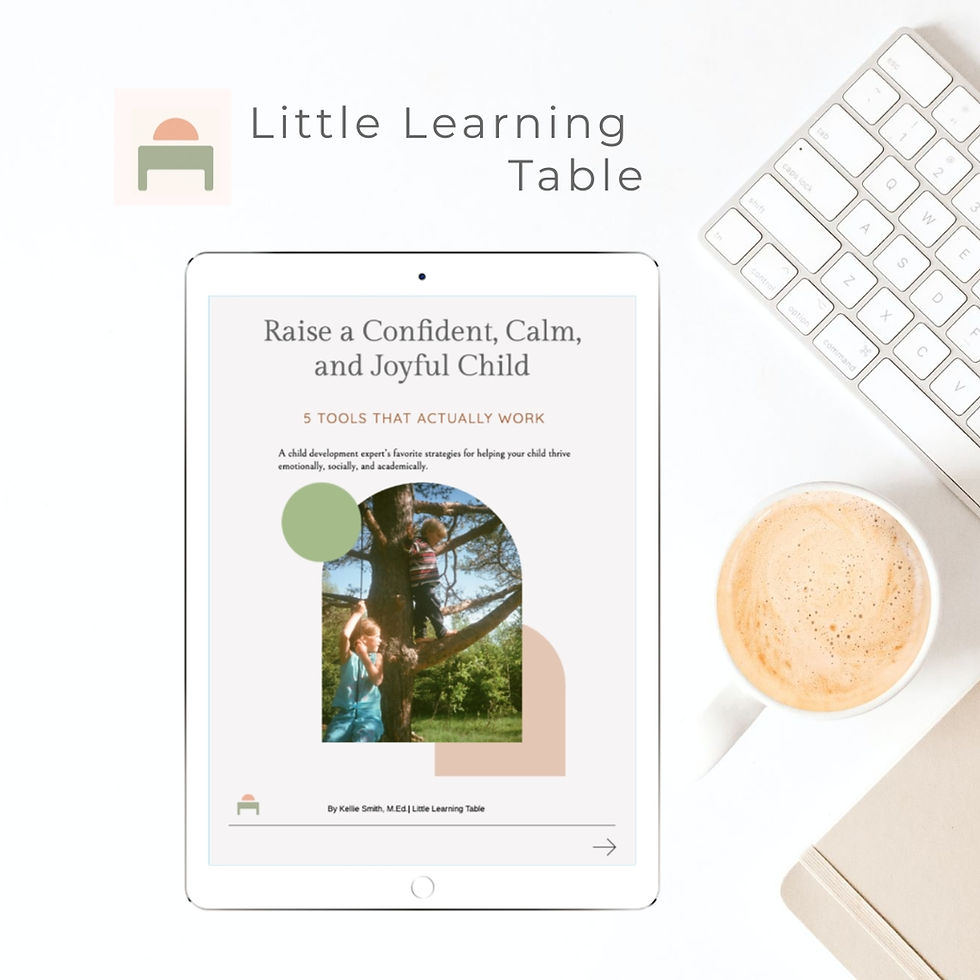Let Kids Be Kids: Reflections on Teaching, Childhood, and What We’re Asking of Our Youngest Learners
- Kellie Smith

- Aug 5, 2025
- 2 min read
By Kellie Smith, M.Ed. | Little Learning Table
When I think back on my time in the classroom, from public schools in Oklahoma and Texas to private schools in New York City, I carry with me one deep belief: childhood is sacred. Our youngest learners are still becoming. They are full of wonder, still figuring out how the world works, and yet, they’re often treated as if they should already have it all figured out.
used to look at my kindergartners and ask myself, “How many summers have they had? How many snow days do they even remember?”
That simple reflection helped me zoom out and recalibrate. It reminded me just how new everything is to them. It reminded me to slow down, speak gently, and make space for their smallness. Because they are small. Even the ones with big vocabularies or mature-sounding opinions. Even the ones who seem so grown up for their age. They are still children.
One of the biggest challenges I’ve seen in education today is that we sometimes forget what it’s like to be five. And as adults, teachers, caregivers, parents, we may unintentionally start treating children as peers, expecting too much, too soon.
We make the decisions for them. We decide how many hours a day they’ll be in school, how much of their learning should come from home versus the classroom, what qualifies as “productive,” and what doesn’t. Somewhere along the way, the expectations for early childhood shifted. We moved from half-day kindergarten to full-day programs with 30-minute rug lessons and only 15 minutes of recess. I’ve seen this firsthand, especially when I taught in Dallas.
We must ask ourselves, what is all of this pressure doing to our children?
Is the rising prevalence of diagnoses like ADHD or autism simply about better detection, or are we also creating environments that are overstimulating, rigid, and developmentally inappropriate?
Even in schools that prioritize play and curiosity, I’ve seen the strain. At the private schools where I taught, there was more play and inquiry, as well as longer recess times and indoor choice times. These were steps in the right direction. But the pace was still intense. Some five-year-olds had schedules more complicated than mine. I remember one student who had two, sometimes even three, extracurricular activities after school. They were often exhausted, but didn’t want to let go of any of their commitments. My heart ached for them.
We cannot forget that children are not just future adults. They are people now.
They deserve to be spoken to with kindness, given space to move and rest, and supported by systems that honor their developmental stage. They cannot advocate for themselves, so we must do so on their behalf. With clarity, compassion, and courage.
Let’s protect the magic of childhood. Let’s prioritize connection over performance. Let’s build classrooms and communities that honor the pace of real, human growth.
For the sake of our children, let’s remember what it means to be little. 🩶






Comments